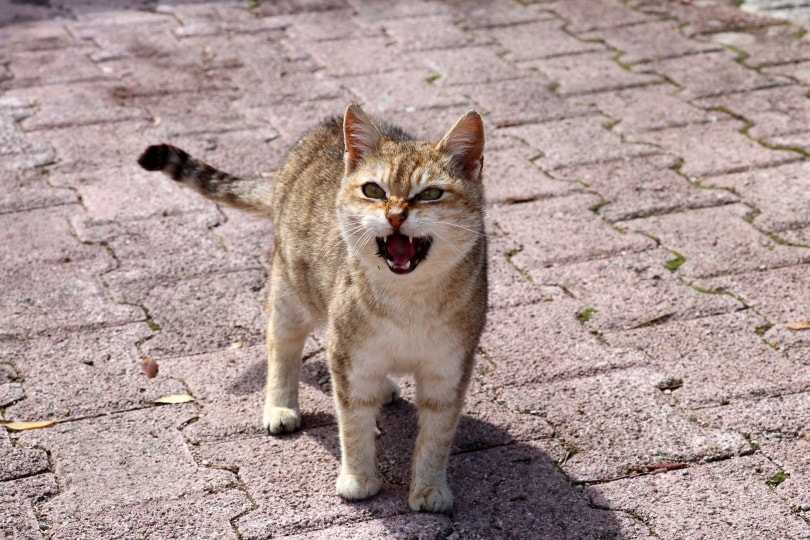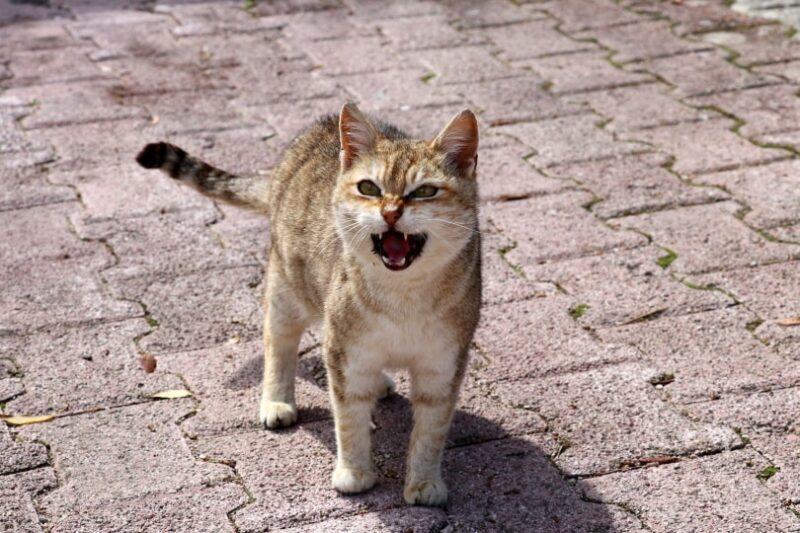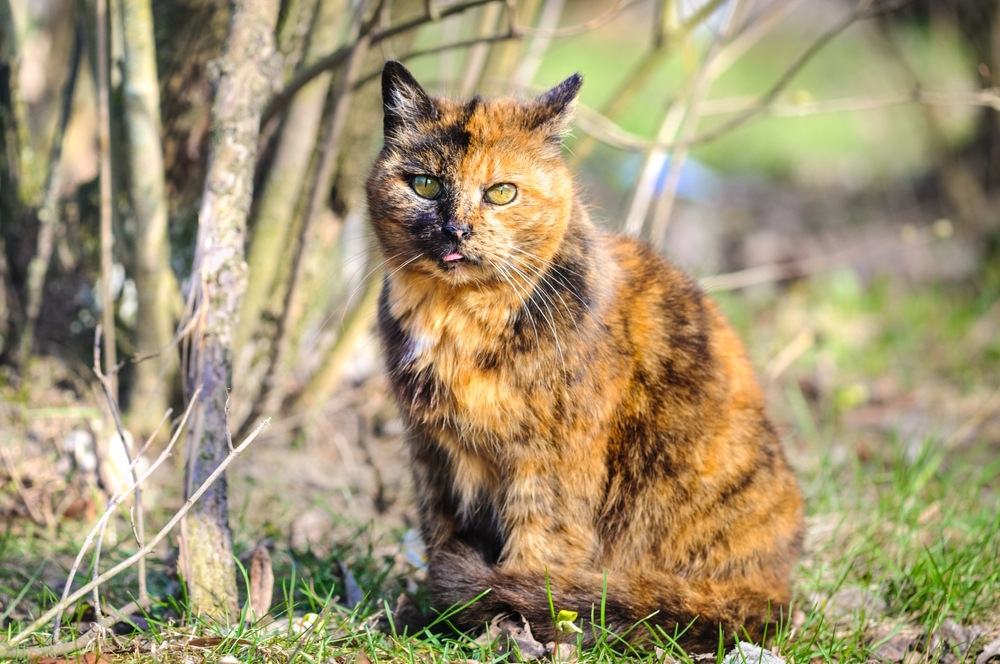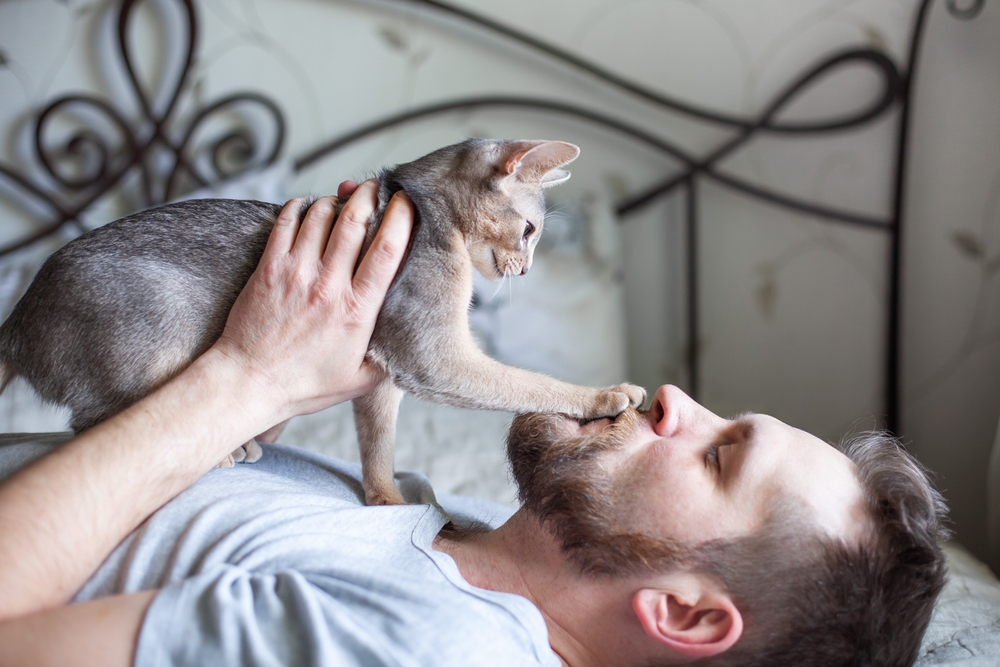Cats can surprise us with their unexpected and unusual sounds during the day, but how often do you take the time to hear what they have to say? Even though they don’t speak our language, cats use various vocalizations to communicate with us and other animals to ensure their survival. Research has thus far identified that cats make 21 different sounds that we know of, and while a true howl only has a few causes (antagonistic or defensive communication), it can easily be confused with other types of cries 1.
A cat’s howl can be one of the more startling sounds to hear and one of the most critical to heed. Let’s explore what cat howling means, why your kitty might do it, and what you can do to help.
What Does Cat Howling Sound Like?
Howls accompany several other defensive sounds, including hissing, growling, yowling, and spitting, in lengthy sequences when the cat is on the defensive. Cats often combine howling and growling into one intonation.
Howls are shorter than yowl sounds, typically lasting less than 1.5 seconds. They’re also higher-pitched than yowls. The frequency fluctuates significantly as the cat opens and closes their mouth to produce extended vocalizations.
Agonistic sounds like howling occur when the cat’s body is tense and displaying other signs of conflict. Their hair may stand up, and their whiskers point forward as they arch their backs, making them appear larger.
The 2 Common Reasons Why Cats Howl
1. Warning
Howling is one of several agonistic sounds a cat might make before engaging with a potential threat. A cat will howl, moan, or hiss as a warning to startle and ward off encroachers, protecting themselves and their territory. They may also howl to warn nearby affiliates to stay on the alert.
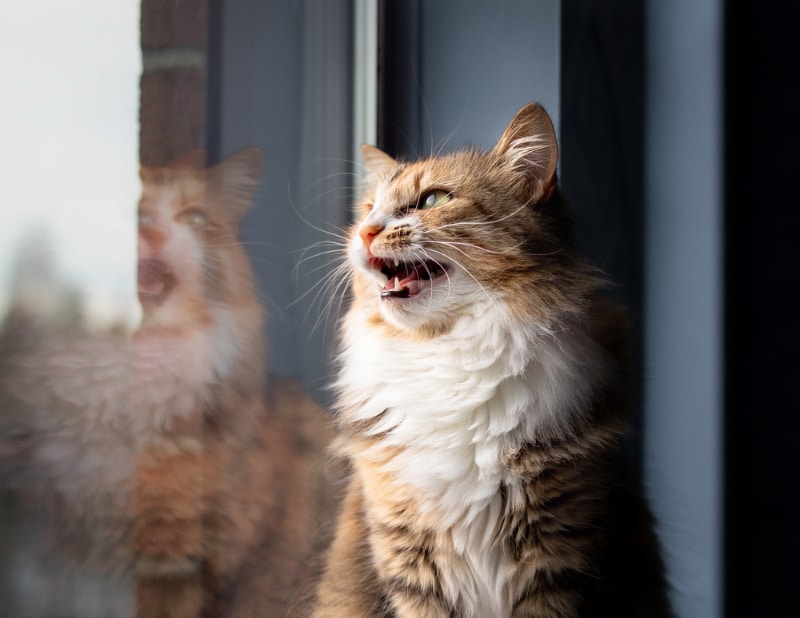
Keep in mind that if a cat is in a heightened state of mind and seems to be on edge, then it’s best to not immediately approach or startle them. Doing so may result in an episode of redirected aggression, a scenario where your cat is upset or angry at one thing but takes it out on another (in this instance it would be you!).
2. Agonistic Behavior
At other times, a cat that’s agonistic (about to engage in a fight) may howl in pretty much the same way a defensive cat would howl. An aggressive cat often howls in conjunction with other sounds and body language cues as well, and there’s somewhat of a gray area when it comes to howling out of aggression or just as a warning; often, a cat may be feeling both the aggressor and on the defensive as well.
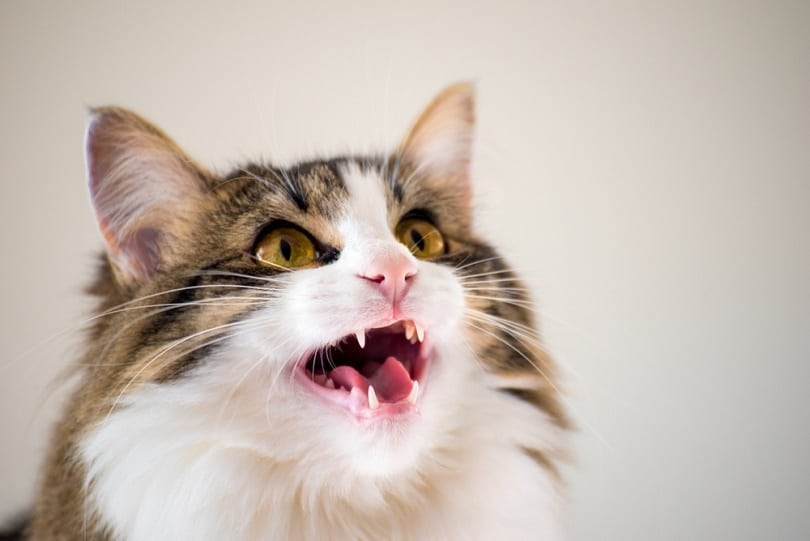
How to Handle Howling
Remove the stimulus and you can decrease your cat’s protective howling. In some instances, it could be as easy as closing the blinds to stop your cat from reacting to the neighborhood animals. Other times, a cat may howl if there’s a new household member they perceive as a threat and competition for resources.
Slow introductions are often necessary. Separating cats for days or weeks initially while trading scents will keep both from becoming too stressed. Gradually, you can desensitize your cat and counter-condition their response by associating the new pet with positivity and rewards.
At other times though, your cat’s howling might not be as easily explained, and in such a circumstance it’s best to seek professional help for your cat from a cat behaviorist.
Conclusion
Howling is a rare, albeit unique sound cats may produce when they’re feeling defensive or about to fight. Sometimes, the solutions are simple, and other times, you’ll need expert help to identify the cause of the sound. No matter the cause, you shouldn’t brush off your cat’s howling as a mere quirk. Every howl is an attempt to communicate with you, and taking a few seconds to look for the reason could make all the difference for your furry friend.
Featured Image Credit: Piqsels

